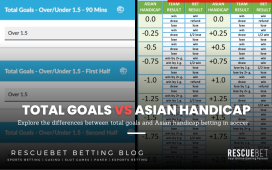Sports have always existed in some form or the other for several millennia. Sports helped increase a group’s bond, helped individuals stay fit and healthy, instilled competitive spirit, and helped determine winners of contests (based on strength, agility, stamina, speed, endurance, etc.). And over the last few centuries, sports have also evolved to include complicated games, scoring, technique, team-sports, national competitions, performance enhancers, and so much more.
Simultaneously, with the growth and popularity of different sports types, we’re also witnessing the growth of a parallel industry – the sports betting industry. And as new punters flock to the betting markets at the start of each season, more individual bets are wagered. The average number of times an individual may wager has increased over the years. This data tells us that punters are placing more bets across the globe. By placing more bets, a punter improves their chances of winning more. However, on the flip side, it becomes much harder for an individual punter to keep track of each wager made and each wager’s details. We take a deeper look at how punters can efficiently track their sports bets accurately and with minimal effort.
How To Keep Track Of Your Sports Bets?
Punters must keep track of their sports bets for multiple reasons. It helps a punter tabulate their profits and losses from each bet, multiple bets over time (a week, a month, 6-months, a year, etc.), total history of bets, good streaks, bad streaks, etc. Without constantly recording, tabulating, and analyzing past betting history, it can be difficult for a punter to spot opportunities for improvement or proof that a strategy works or doesn’t work. We take a deeper look at how punters can keep track of all their sports bets in detail:
1. Select A Location To Save Your Sports Bets
A punter must pick a location to save his sports bets. While some punters store this information in a book or a physical location, a punter must save a history online as well. Storing this information online gives punters easy access without having to carry a physical book, the ability to rearrange data, and automatically update betting information. A punter must be familiar with the storage system using online storage. Professional punters stick to excel or sheets, while other punters use notepads, sticky notes, MS word, etc.
2. Tabulate Your Information
To efficiently tabulate information concerning dates, money, profit, and loss, excel, and Google sheets work well. Arranging data by tabulating it gives a punter an edge. A punter can quickly access this information to make a behavioral or betting decision. A punter may choose not to arrange in an easy-to-understand format. A punter bound to get overwhelmed with the information in front of him after a few wagers (above 25). Moreover, organizing information also helps a punter adopt a more structured and disciplined sports betting approach. For example, a punter can record his information according to the serial number, date, amount wagered, odds, wagers made, type of wager made, profit/loss, etc.
3. Regularly Update
It may be easy for a punter to make a bet and in the spur of the moment. However, it’s also easy to forget to make a data entry for the bet made. Although it’s easy to forget, a punter must regularly update his information. A punter must make an entry right after a bet is made because that’s when everything is still fresh. You can even list down your reasons for making a particular bet to reevaluate if it checks out later. Punters may overlook an important bet if they decide not to make an entry or forget to do so.
4. Reevaluate Your Bets
It’s important to reevaluate the bets made and the consequences of those outcomes. Reevaluating past bets helps a punter calibrate wagers so that betting funds are allocated appropriately. Going over past bets also helps a punter moderate the stakes placed on risky outcomes for the future. Generally, it can be hard to change betting behavior without data to support the change in trend and analyze it.
























